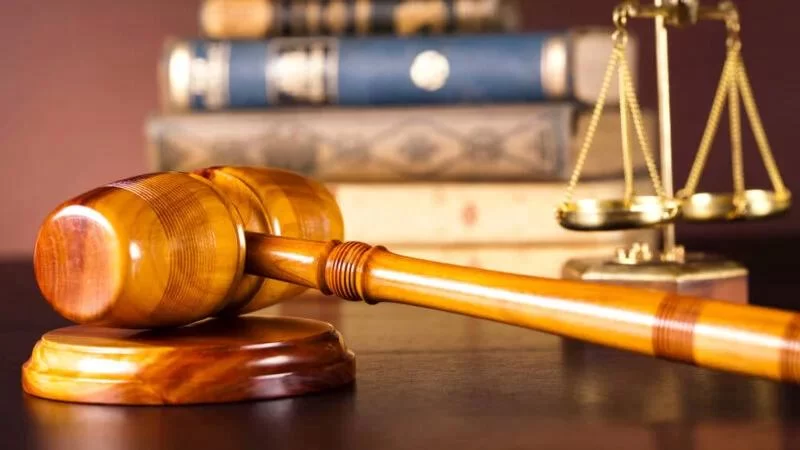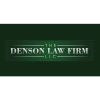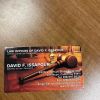- Understanding-Manslaughter-Charges
- Immediate-Actions-To-Take-When-Facing-Charges
- Building-A-Strong-Defense-For-Manslaughter
- Real-Life-Examples-And-Legal-Insights
- Securing-Professional-Legal-Support
1. Understanding Manslaughter Charges
Manslaughter is a serious criminal charge that involves the unlawful killing of another person without premeditation. Unlike murder, manslaughter typically lacks intent to kill but arises from reckless or negligent behavior. The legal system divides manslaughter into two main categories: voluntary and involuntary. Voluntary manslaughter often involves a killing in the "heat of passion," while involuntary manslaughter usually results from careless actions such as a fatal car accident caused by reckless driving.
Recognizing the specifics of your manslaughter charge is crucial because each type carries different legal consequences and defenses. This understanding sets the foundation for effective legal strategy and helps manage the emotional turmoil during such a stressful time.
1.1 The Importance of Early Knowledge
Knowing the precise nature of the manslaughter charge allows you to prepare appropriately and avoid costly mistakes. For example, confusing manslaughter with murder charges can lead to misguided defense approaches. The court also looks at the circumstances around the incident, including the level of negligence or provocation, which directly impacts sentencing.
1.2 Key Differences in Legal Terms
Voluntary manslaughter often includes cases where the accused acted impulsively, such as in self-defense gone wrong or a sudden fight. In contrast, involuntary manslaughter might arise from neglect or recklessness without intent, such as medical malpractice or drunk driving fatalities. These distinctions are subtle but critically important in court proceedings.
2. Immediate Actions to Take When Facing Charges
When you face manslaughter charges, the first 24 to 48 hours are crucial. Staying calm and taking the right steps can influence the outcome of your case significantly.
2.1 Avoid Self-Incrimination
The urge to explain or justify your actions immediately after the incident can be strong, but anything you say to the police or others can be used against you in court. It’s vital to exercise your right to remain silent and avoid informal discussions about the case until you have legal representation.
2.2 Secure Legal Representation Promptly
Getting an experienced attorney familiar with manslaughter cases is the single most important step. A skilled lawyer can guide you through legal procedures, negotiate with prosecutors, and build a solid defense. If you need professional help, Fred Miller Lawyer specializes in defending individuals facing manslaughter charges and can provide tailored legal assistance.
2.3 Collect Evidence and Document Everything
Gathering information about the incident early on helps create a comprehensive defense. This includes eyewitness accounts, medical reports, and any physical evidence relevant to the case. Thorough documentation can reveal important facts that might reduce your liability or highlight mitigating circumstances.
3. Building a Strong Defense for Manslaughter
Constructing a credible defense involves deep legal analysis and understanding the context of the case. Your attorney will explore multiple angles to challenge the prosecution’s claims and present your version of events clearly.
3.1 Challenging Intent and Causation
One of the primary defenses in manslaughter cases is disproving intent or negligence. Demonstrating that the death was accidental or caused by factors beyond your control can significantly reduce charges. For example, if you can prove you were acting in self-defense or that another party contributed to the fatal outcome, this can shift the case in your favor.
3.2 Presenting Mitigating Factors
Even if responsibility is acknowledged, certain factors like lack of prior criminal record, provocation, or remorse may influence sentencing. Your defense team will emphasize these aspects to seek reduced penalties or alternative sentencing options.
3.3 Expert Testimonies and Forensic Evidence
Hiring forensic experts to analyze physical evidence or medical experts to review cause of death can uncover doubts in the prosecution’s case. These professionals provide impartial opinions that can dismantle weak or circumstantial evidence presented against you.
4. Real-Life Examples and Legal Insights
To illustrate, consider the case of John D., who was charged with involuntary manslaughter following a tragic car accident. John had been driving slightly above the speed limit when another driver suddenly braked in front of him. With rapid legal intervention and expert accident reconstruction, John’s defense successfully argued that the fatal collision was unforeseeable and unavoidable under the circumstances. The charges were reduced, and John received probation instead of prison time.
Another example involves Sarah M., who faced voluntary manslaughter charges after a heated altercation led to an unintended fatality. Her attorney focused on the emotional state provoked by the victim’s aggression and presented evidence of self-defense attempts. The court acknowledged the provocation and sentenced Sarah with a lesser penalty, emphasizing rehabilitation.
These cases highlight how nuanced manslaughter defenses can be and why personalized legal guidance is indispensable. Situations like these underscore the importance of consulting with experienced professionals who understand the complex nature of manslaughter law.
5. Securing Professional Legal Support
Facing manslaughter charges is daunting, but the right legal support can provide clarity and hope. Engaging a law firm with a proven track record in manslaughter defense, such as Fred Miller Lawyer, ensures you get expert advice tailored to your unique situation. They offer comprehensive consultations, detailed case analysis, and aggressive representation designed to protect your rights and future.
From initial case assessment to courtroom defense and plea negotiations, professional attorneys bring not only legal expertise but also emotional support through this challenging process. Remember, acting quickly to secure such help is key to mounting an effective defense.
Ultimately, understanding your charges, responding strategically, and seeking expert assistance are the pillars of navigating manslaughter allegations. If you or someone you know is confronted with these serious accusations, don’t hesitate to reach out to professionals who can guide you every step of the way.


 geoff mcdonald & associates p.c
geoff mcdonald & associates p.c immigration office hialeah fl
immigration office hialeah fl denson law firm
denson law firm david issapour
david issapour the grossman law firm llc
the grossman law firm llc hernandez and associates denver
hernandez and associates denver